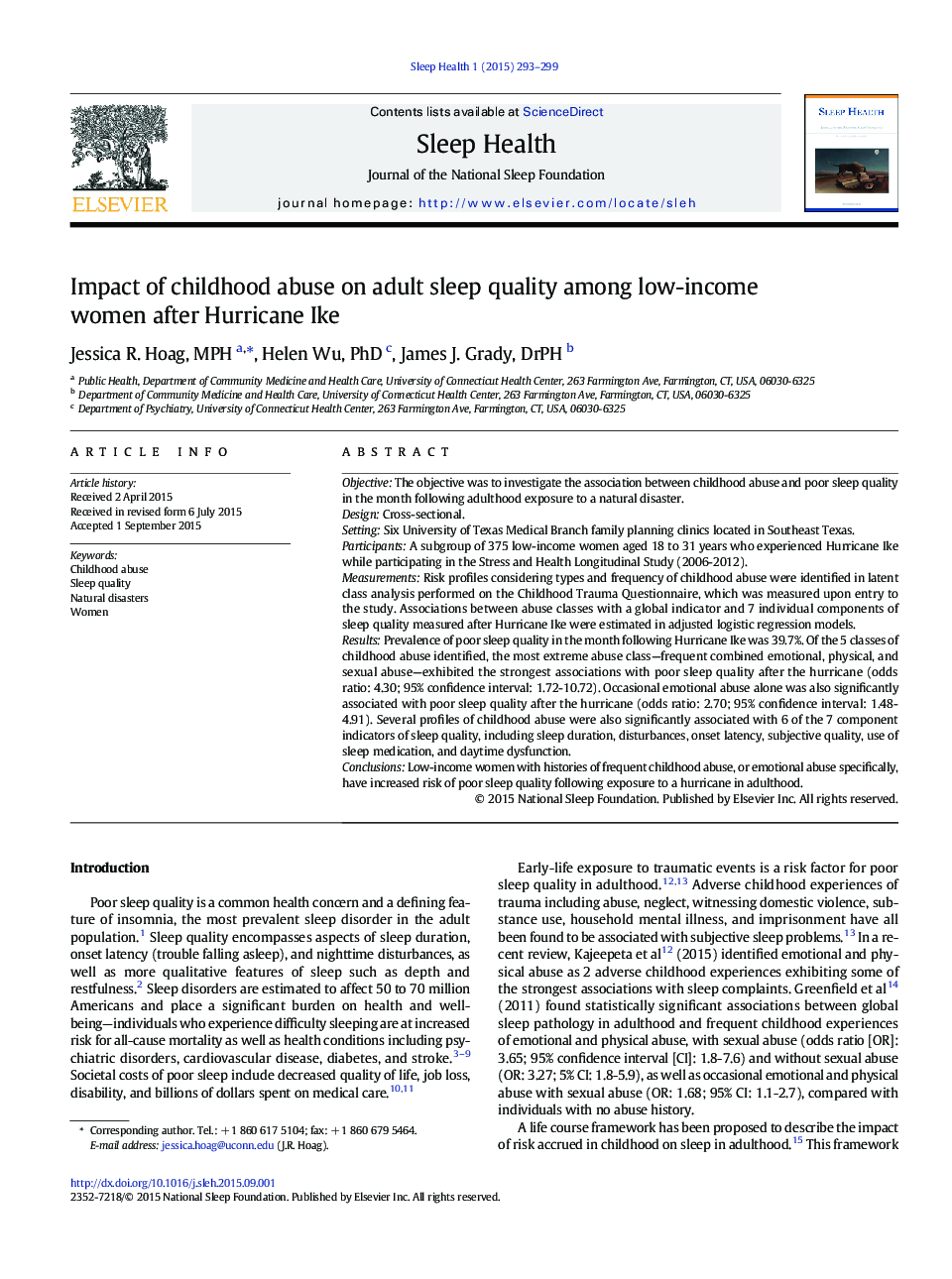| Article ID | Journal | Published Year | Pages | File Type |
|---|---|---|---|---|
| 916289 | Sleep Health | 2015 | 7 Pages |
ObjectiveThe objective was to investigate the association between childhood abuse and poor sleep quality in the month following adulthood exposure to a natural disaster.DesignCross-sectional.SettingSix University of Texas Medical Branch family planning clinics located in Southeast Texas.ParticipantsA subgroup of 375 low-income women aged 18 to 31 years who experienced Hurricane Ike while participating in the Stress and Health Longitudinal Study (2006-2012).MeasurementsRisk profiles considering types and frequency of childhood abuse were identified in latent class analysis performed on the Childhood Trauma Questionnaire, which was measured upon entry to the study. Associations between abuse classes with a global indicator and 7 individual components of sleep quality measured after Hurricane Ike were estimated in adjusted logistic regression models.ResultsPrevalence of poor sleep quality in the month following Hurricane Ike was 39.7%. Of the 5 classes of childhood abuse identified, the most extreme abuse class—frequent combined emotional, physical, and sexual abuse—exhibited the strongest associations with poor sleep quality after the hurricane (odds ratio: 4.30; 95% confidence interval: 1.72-10.72). Occasional emotional abuse alone was also significantly associated with poor sleep quality after the hurricane (odds ratio: 2.70; 95% confidence interval: 1.48-4.91). Several profiles of childhood abuse were also significantly associated with 6 of the 7 component indicators of sleep quality, including sleep duration, disturbances, onset latency, subjective quality, use of sleep medication, and daytime dysfunction.ConclusionsLow-income women with histories of frequent childhood abuse, or emotional abuse specifically, have increased risk of poor sleep quality following exposure to a hurricane in adulthood.
